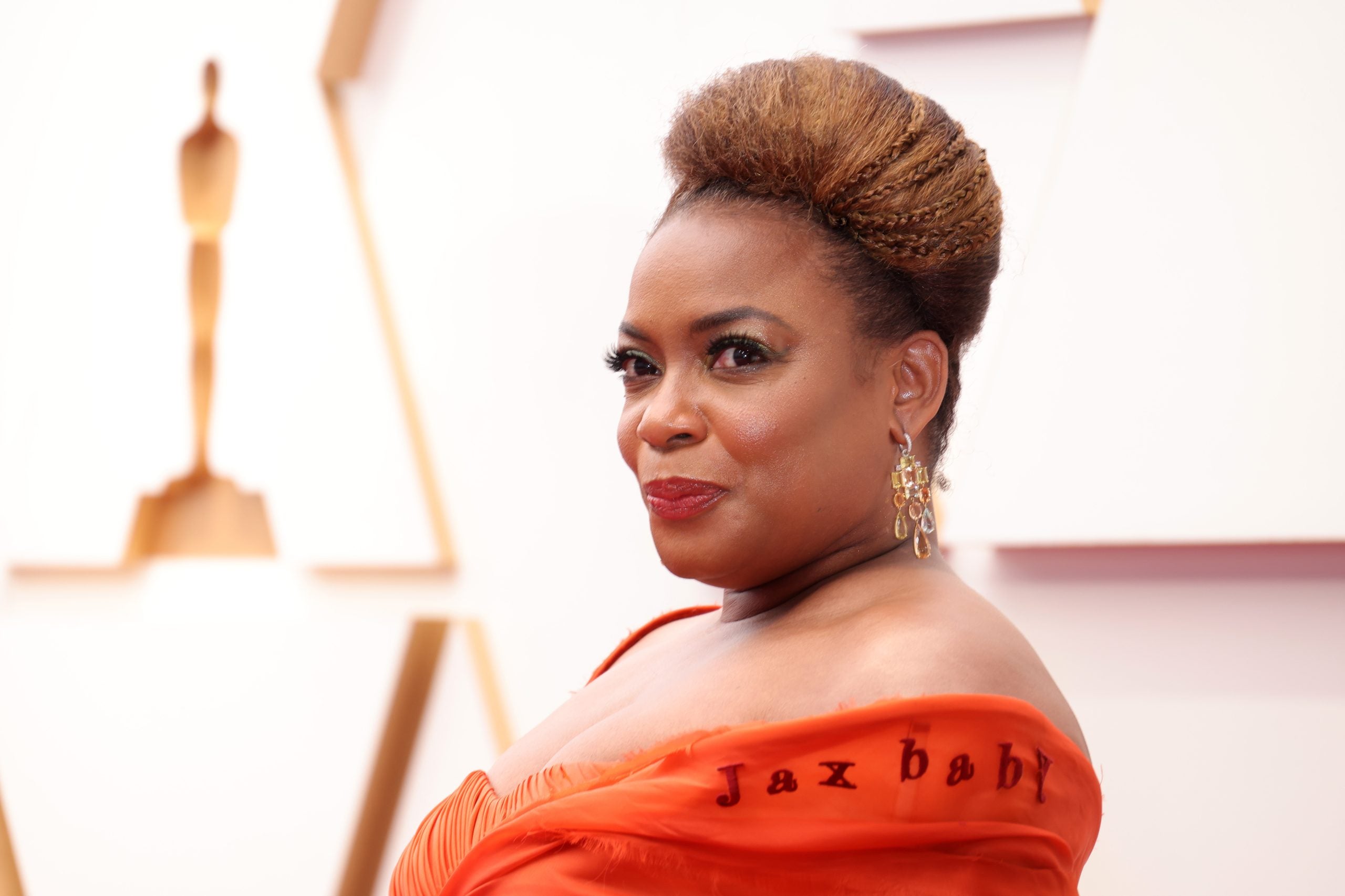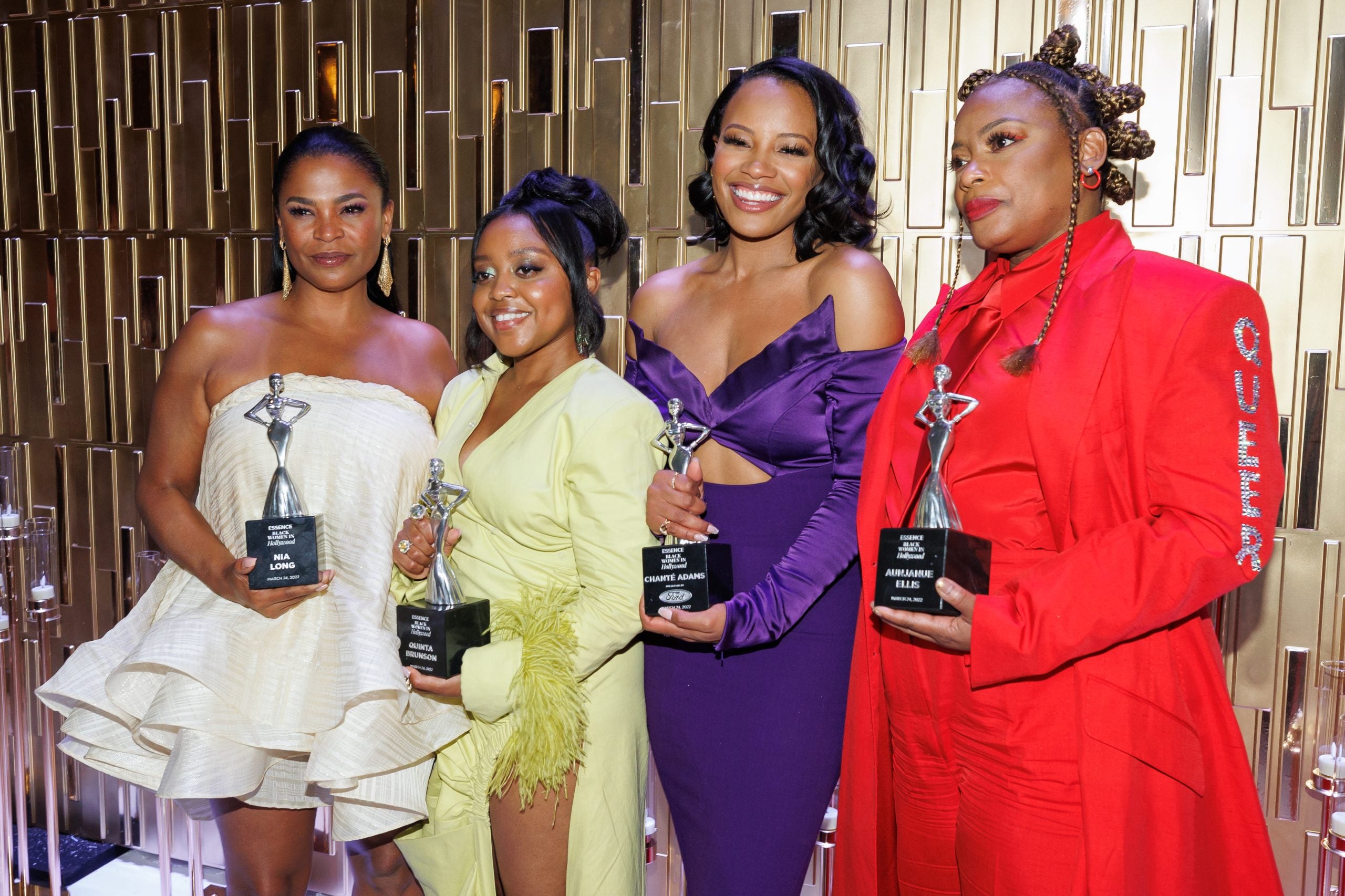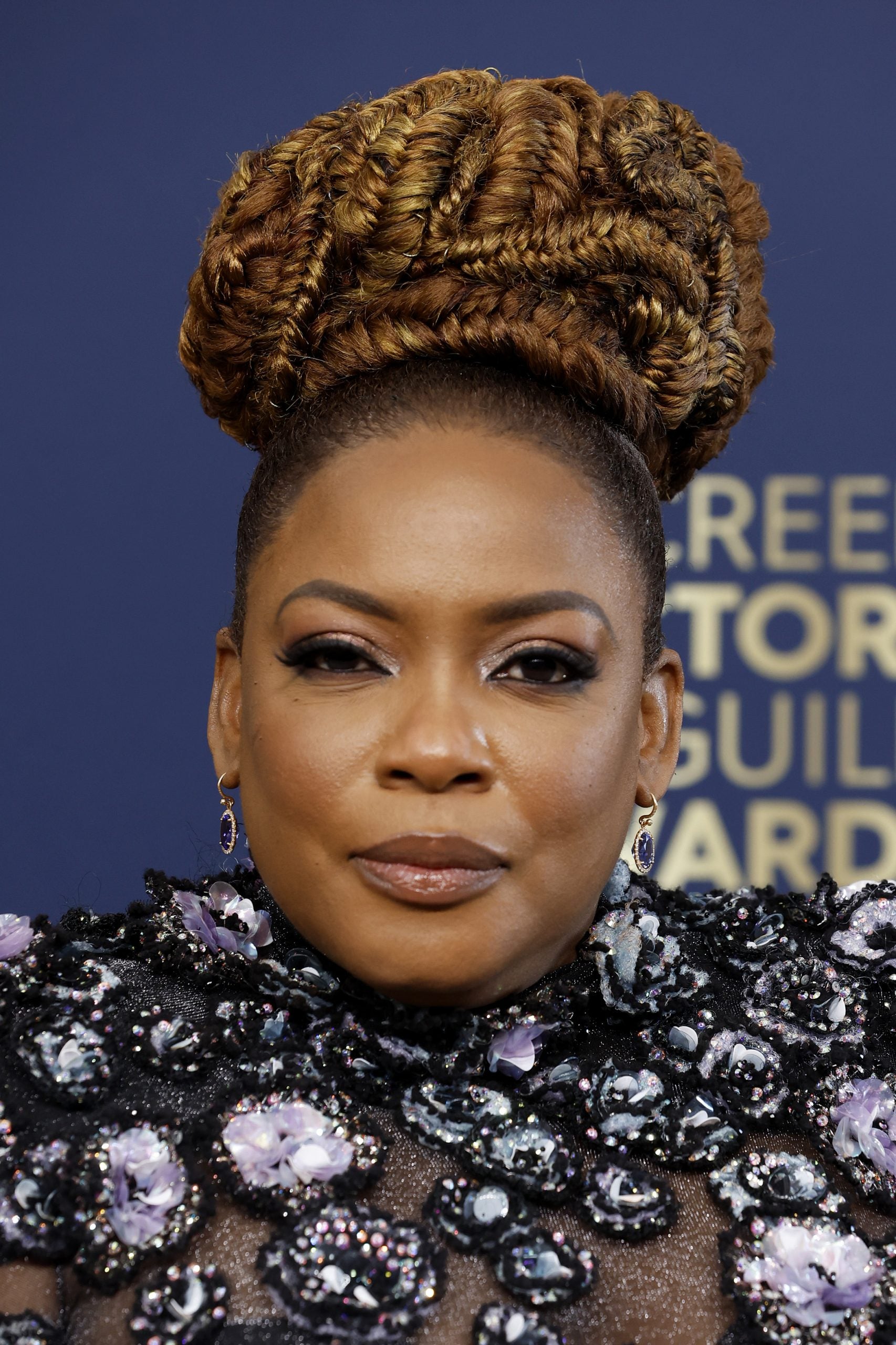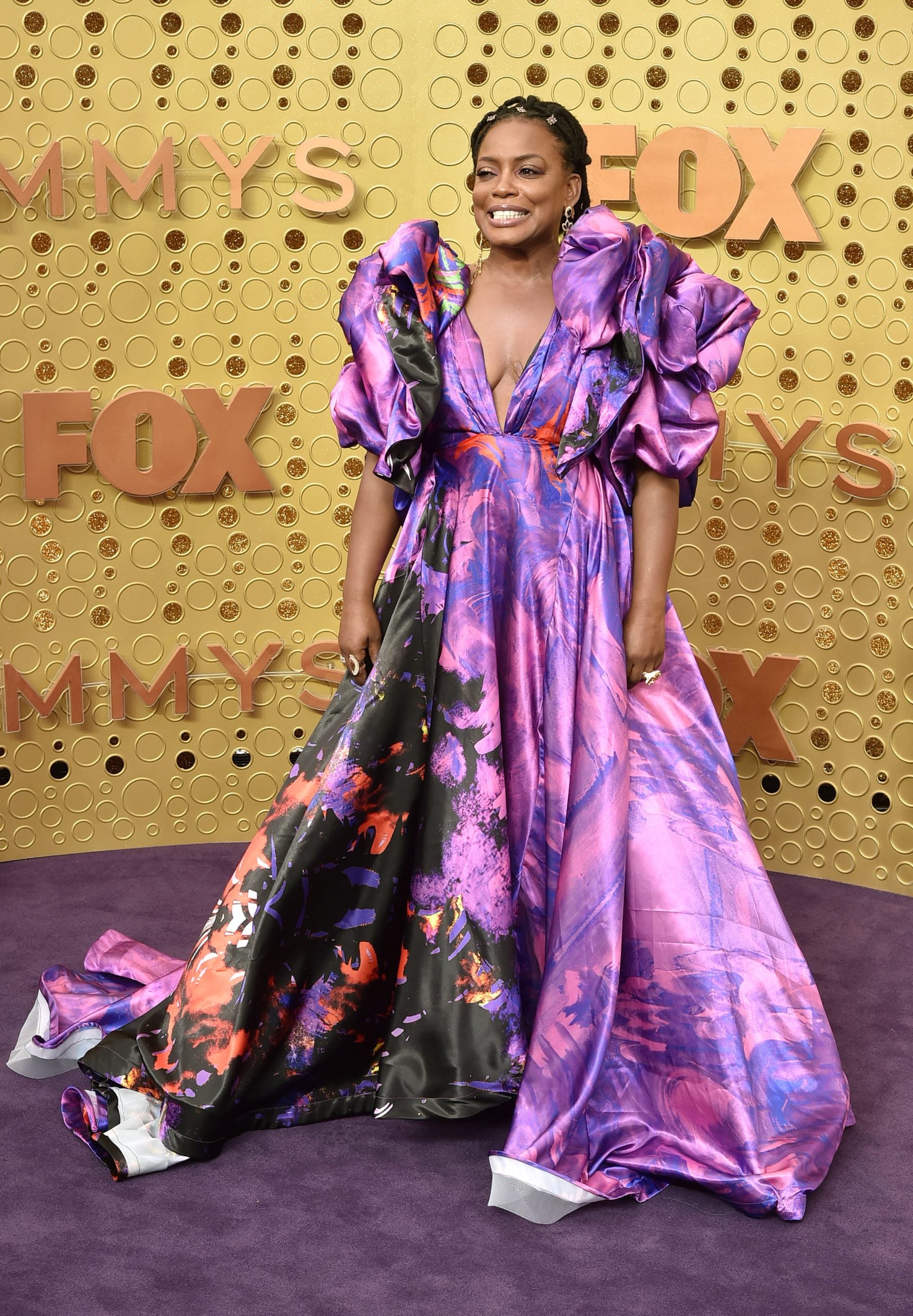
Aunjanue Ellis has never been secretive about who she is, but the actress is fully opening up about her queer identity for the first time ever just as Pride Month 2022 kicks off.
Ellis, 53, tells Variety that she has been open about the fact that she is a bisexual woman that identifies as queer with friends, family, and coworkers throughout the duration of her career. In fact, she even announced it via her signature style – stitching words of affirmation and identity into her clothing for events and appearances – while accepting her honor at the 15th annual ESSENCE Black Women in Hollywood luncheon last March.
The word “queer” was emblazoned on the right sleeve of her bold red Dolce & Gabanna suit in bold, Swarovski-encrusted letters. But, Black women ever being the mind-our-business type, it went largely unacknowledged at the event.

“I was thinking, ‘Why didn’t more people pay attention to that?’ And I was like, they probably thought it said ‘Queen,’” she laughed. “It wasn’t that I was expecting any sort of major reaction or anything like that. One of my family members noticed, but nobody else did.”
For Ellis, the main hurdle to more public declaration has never been embarrassment or fear, but she says, the perception and pride of her family. Though her family has long known her truth, with their deep-South Bible Belt values, they encourage her to keep things private. Ellis said a family member told her that even that subtle stitching on her sleeve, unnoticed by many and unaddressed by all, was ‘hurtful’ for them.
“The way that I live my life, around the people that I live my life around, I am public about it,” Ellis says. “I’m very clear about being bisexual. I have a sweatshirt that says ‘Girl Bi’ that I wear everywhere.”
As for why she never formally opened up about her queer identity in the press before this, the answer is pretty simple for Ellis: “Nobody asked.”

The Mississippi native says she has known that she is queer since the age of 8. But growing up in a staunchly religious community, she didn’t always know what it meant or how to navigate it.
“The solitude of that is so lonely, it’s violent,” she said of growing up queer. “It’s violent because you literally have to tuck and place so many parts of you to be acceptable, so people won’t run from you and don’t want to be around you. It was exhausting. That’s what childhood was like. That’s what adolescence was like. I knew [my sexuality], but there was no template for it; there was no example of it; there was no place for it, and certainly no forgiveness for it.”
Finally able to fully acknowledge that she is bisexual in her 30’s, Ellis’ next struggle was broaching the topic with fellow actors in the industry, who often expressed some not-so-progressive ideas about queer identities that they never hesitated to share with her, under the presumption that she was both straight-identifying and like-minded.
“There is an assumption made of me — a presumption made of me. Is it because I’m a Black woman from Mississippi? Is it because I’m older?” she wondered. “I don’t know what the mechanics are that goes into them not processing, or them not just being able to believe that in the same way I am Black, I am queer. This is who I am.”

But she eventually mustered up the courage to send out a group text to let everyone in her circle know that she’s a bisexual woman, and when disparaging comments are made about queer people, they hit her like a personal attack.







“I was like, ‘Look, I love y’all. I appreciate my relationships and friendships, working and otherwise with all of you, but you need to know that I am bisexual. So when you say things, when you have felt your most intimate with me, that are queer-phobic, you are talking about me. And it hurts.’”
Now, Ellis is making it a career focus to bring more stories centering Black queer characters and historical figures to the screen, so that understanding and tolerance can be commonplace, and queer identity becomes less taboo.
“This idea that we just decided to be gay two years ago, or 15 years ago, or 20 years ago is a lie,” she said. “It is not a blemish on who we are. It is the wonderful scope of our humanity as Black folks in this country. It is something that I am insisting on, in what I bring into the world creatively.”








